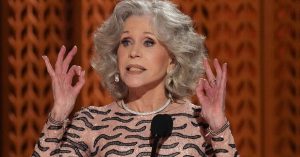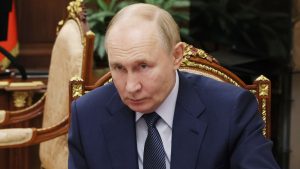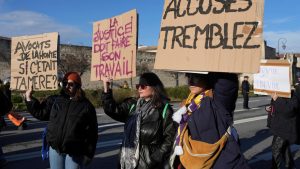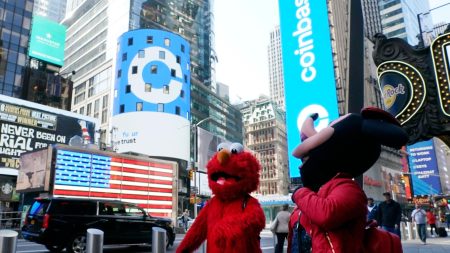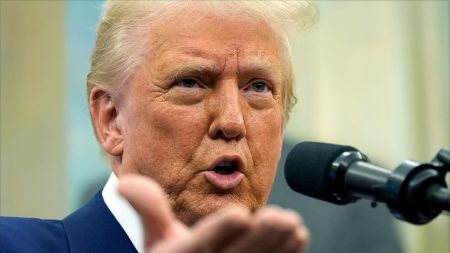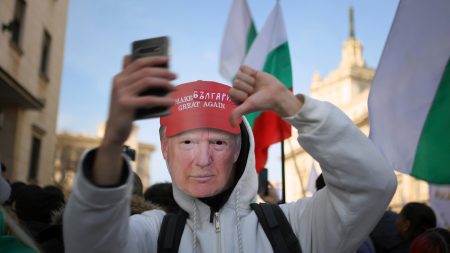The White House vs. the Press: A Clash Over Freedom and Language
Introduction: A Growing Tension Between the White House and the Press
The relationship between the White House and the press has always been complex, but recent events have brought this tension to a boiling point. On Thursday, the White House barred an Associated Press (AP) journalist from covering a high-profile news conference featuring President Donald Trump and Indian Prime Minister Narendra Modi. This decision escalated a ongoing dispute between the Trump administration and the AP over a seemingly mundane issue: the name of a body of water. The president had rechristened the "Gulf of Mexico" as the "Gulf of America," and the AP’s refusal to follow suit became the catalyst for this latest clash. This incident is not just about a name; it reflects a deeper struggle over press freedom, governmental authority, and the role of journalism in a democratic society.
The Incident: A Reporter Barred from a Global Stage
The AP reporter was denied access to a press conference where two of the world’s most influential leaders were addressing questions. This move effectively shut out not just the AP but also the thousands of global news outlets that rely on the agency’s coverage. Julie Pace, the AP’s senior vice president and executive editor, condemned the action as a "deeply troubling escalation" and a direct violation of the First Amendment. In a strongly worded statement, Pace emphasized that this was not an isolated incident but part of a pattern: AP reporters had been barred from covering the president for three consecutive days, first as part of the press pool and now from a formal press conference. "This is an incredible disservice to the billions of people who rely on The Associated Press for nonpartisan news," Pace said. The White House’s decision to block a credentialed journalist from such a significant event represents a stark departure from precedent and a concerning erosion of press access.
The Response: Outrage from Journalists and Advocates
The backlash against the White House’s actions was swift and widespread. Eugene Daniels, president of the White House Correspondents’ Association, issued a scathing statement in support of the AP. "The White House is seeking to curtail the press freedoms enshrined in our Constitution," Daniels said. "Prohibiting journalists from access because of their editorial decisions is viewpoint discrimination." Daniels also pointed out that this was a "textbook violation" of both the First Amendment and the president’s own executive order on freedom of speech. The White House Correspondents’ Association, which represents the interests of journalists covering the White House, has long been a vocal advocate for press freedom, and this incident has only strengthened their resolve to push back against what they see as an overreach of executive power.
The Implications: A Chilling Effect on Journalism
The White House’s decision to bar the AP reporter from the press conference has far-reaching implications for journalism and democracy. By punishing a news organization for its editorial decisions, the administration is setting a dangerous precedent. Press Secretary Karoline Leavitt defended the move, stating that media access decisions are up to the president and suggesting that the AP’s refusal to use "Gulf of America" amounted to spreading "lies." "We reserve the right to decide who gets to go into the Oval Office," Leavitt said. This rationale has alarmed First Amendment advocates, who argue that such actions amount to viewpoint discrimination and undermine the principles of a free press. The AP’s decision to stick with "Gulf of Mexico" was not taken lightly; it was based on the agency’s style guidelines and a recognition that the body of water lies partially outside U.S. territory.
The Naming Dispute: A Symbolic Battle with Real-World Consequences
At the heart of this controversy is a naming dispute that might seem trivial at first glance but carries significant symbolic weight. President Trump has long been known for his tendency to redefine reality through language, and his decision to rename the Gulf of Mexico is part of this broader pattern. While the AP agreed to use the president’s preferred name for Denali (formerly known as Mt. McKinley), it drew the line at the Gulf of Mexico, arguing that the body of water lies outside U.S. jurisdiction and is therefore not subject to presidential authority. This decision has had ripple effects beyond the AP; both Google Maps and Apple Maps have partially or fully adopted the term "Gulf of America," sparking outrage in Mexico. Mexico’s president even considered suing Google over the change, highlighting the international dimensions of this seemingly domestic dispute.
Conclusion: Press Freedom in Peril
The clash between the White House and the AP is a microcosm of a larger struggle over the role of the press in holding power to account. While the Trump administration frames its actions as a necessary response to "fake news" and a biased media landscape, critics see them as a thinly veiled attempt to intimidate and control the press. The First Amendment guarantees freedom of the press, but those protections are only as strong as the willingness of journalists, advocates, and the public to defend them. As the White House continues to push the boundaries of executive power, the stakes for democracy couldn’t be higher. This is not just about a name or a press conference; it’s about whether the press can continue to serve as a watchdog over the powerful.
